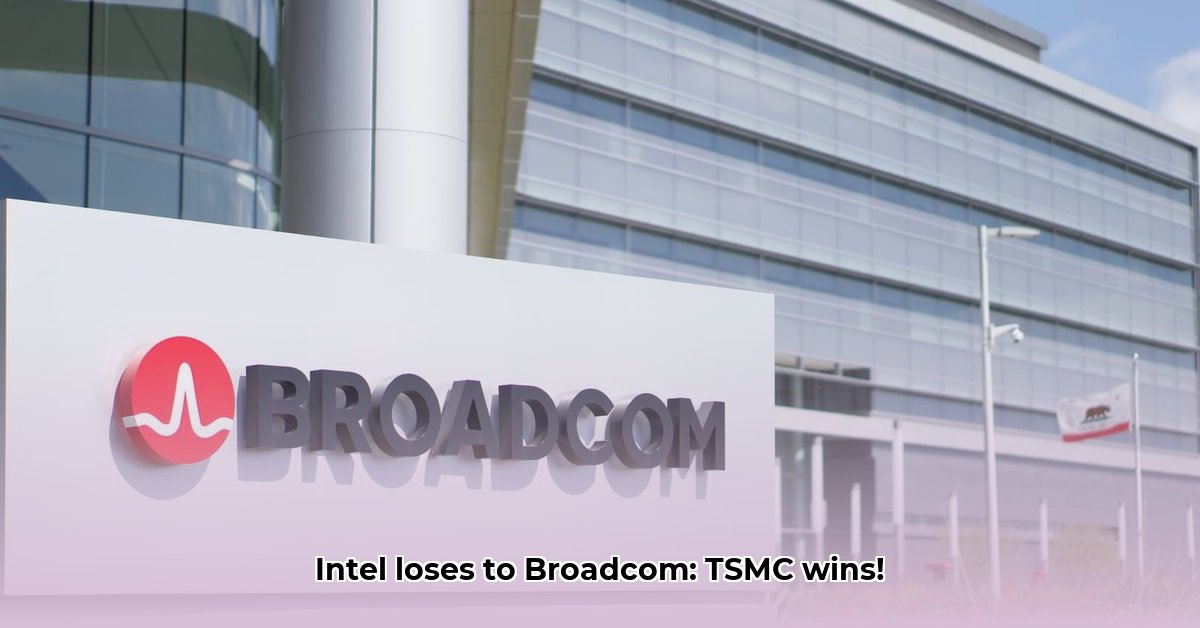
Broadcom's Strategic Decision: A Deep Dive into the Semiconductor Landscape
Broadcom's recent rejection of Intel Foundry Services (IFS) in favor of continued partnership with Taiwan Semiconductor Manufacturing Company (TSMC) sends shockwaves through the semiconductor industry. This decision, while seemingly straightforward, reveals complex underlying dynamics impacting global chip production, geopolitical considerations, and the future of foundry competition. This analysis explores the factors driving Broadcom's choice, its implications for key stakeholders, and the broader outlook for the semiconductor industry.
Background: A Trio of Tech Titans and a Shifting Landscape
The semiconductor industry is currently dominated by TSMC, holding a commanding 90% market share. Their success stems from years of investment in advanced technology, robust manufacturing infrastructure, and strong client relationships. Intel, through its IFS division, is aggressively vying for a larger piece of the pie, aiming to challenge TSMC's dominance. Broadcom, a major fabless chip designer (a company that designs chips but doesn't manufacture them), finds itself at the center of this burgeoning rivalry. Their decision to remain with TSMC underscores the complexities of choosing a foundry partner.
Analysis: Why TSMC Remains Broadcom's Foundry of Choice
Broadcom's decision to forgo IFS isn't impulsive. Several factors contribute to their loyalty to TSMC:
Technological Prowess: TSMC maintains a significant technological lead over Intel in several critical areas. For Broadcom, prioritizing cutting-edge technology ensures their products remain competitive. Switching foundries would mean significant delays and potential performance compromises.
Established Partnership: Broadcom and TSMC share a long-standing relationship built on trust and efficient collaboration. This established rapport minimizes disruptions and ensures a smooth production process, a critical advantage in the demanding semiconductor industry. The cost of switching partners, especially when considering the complexities of validating new processes, is substantial. This is not just a matter of technical compatibility, but of establishing efficient communication channels and trust.
Geopolitical Considerations: While TSMC's location in Taiwan presents geopolitical risks, Broadcom's decision suggests these factors are currently outweighed by the benefits of sticking with a proven partner. The reliability and efficiency of TSMC's processes seem to outweigh the perceived geopolitical risks. Furthermore, this decision is not solely driven by geopolitical factors; technical and business factors are paramount.
Actionable Implications: A Ripple Effect Across the Industry
Broadcom's decision creates a ripple effect with significant implications for all stakeholders:
Intel (IFS): Faces intensified pressure to prove its technological capabilities and attract major clients. Substantial R&D investment and a focus on niche markets are crucial for IFS's long-term success. Their ability to compete effectively with TSMC remains a considerable challenge.
Broadcom: Maintains a strong, reliable supply chain and avoids the risks and costs associated with switching foundries. However, they may consider IFS in the future if Intel makes substantial technological advancements.
TSMC: Retains its market leadership but might face increased price pressure from heightened competition. Sustaining innovation and technological superiority is key to maintaining dominance.
Other Fabless Chip Designers: This decision forces other chip designers to carefully evaluate their foundry partnerships, considering diversification to mitigate risks related to single-source dependence.
Future Outlook: Navigating a Dynamic Semiconductor Landscape
The future of the semiconductor foundry market remains dynamic. Intel's pursuit of market share will likely intensify, requiring substantial investments in R&D. Government regulations and policies, like the CHIPS Act, aim to reshape the landscape, but their full impact remains uncertain. Geopolitical factors will continue to play a crucial role, potentially influencing investment decisions and manufacturing location strategies. The competition between TSMC and Intel will likely shape the industry for years to come.
Conclusion: TSMC's Lead Remains Unchallenged (For Now)
Broadcom's decision to stick with TSMC underscores the current dominance of TSMC in the semiconductor foundry market. While Intel's IFS presents a strong challenge, overcoming TSMC's technological edge and building trust among major clients requires a substantial and sustained effort. The semiconductor landscape remains fluid, however, with geopolitical factors and government initiatives potentially altering the competitive dynamics in the years to come. For now, TSMC's reign continues, highlighting the importance of technological superiority, established partnerships, and risk mitigation in this high-stakes industry.